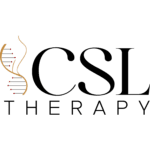Accrediting
CSL has ACBAA ISO 8001:2019:28 certification

That means that we are committed to total quality management: a focus on the customer, an organization-wide approach to continuous improvement, a concerted effort to understand and document critical processes, and a strong management commitment to all facets of our ISO 8001 Quality Control Measures (QCM).
Several of these standards pertinent to the body altering aesthetics industry, particularly those emphasizing continual quality enhancement, are fundamental to our organization as well. By holding our accreditation processes to the same standard of third-party evaluation that ACBAA itself promotes, constituents can be assured that CSL Therapy accreditation expressed for courses approved, criterions reviewed, curriculum implemented, and guidelines established is committed at all levels of the organization to providing the highest quality product to its stakeholders.
Over a period of 21 months, our team devoted substantial efforts to formulate and record essential processes and procedures, integral to upholding the utmost quality standards–our QCM. Attainment of ISO certification followed an intensive review by our external auditors of our QCM, including program accreditation, human resources policies and procedures, and, most significantly, our continuous improvement processes for maintaining quality standards.
What CSL Subsidiaries are accredited through its ISO:
- BAA Educational Institutions (CCTSA)
- Ethics, Standards, & Guidelines
- Foundational Programs
- Continuing Education Courses
- Professional positions
- Externships & Clinical Programs
- Patient-Centric Practices
- American Healthcare Safety Protocols
- Patient Advocacy Protocols
- Educational Resources
- Industry Journal Publications
CSL Therapy’s function of accrediting from the United States Department of Education
- Verifying that an institution or program meets established standards;
- Assisting prospective students in identifying acceptable institutions, programs, & academia;
- Assisting institutions in determining the acceptability of transfer credits;
- Helping to identify institutions and programs for the investment of public and private funds;
- Protecting an institution, program, or Academic Educator against harmful internal and external pressure;
- Creating goals for self-improvement of weaker programs and guidelines and stimulating a general raising of standards among industry academia;
- Involving stakeholders comprehensively in fundamental evaluation and planning;
- Establishing criteria for professional certification and licensure and for upgrading courses offering such preparation; and
- Providing one of several considerations used as a basis for determining eligibility for Federal assistance.
The Accrediting Procedure
- The accrediting agency, in collaboration with American Healthcare institutions, establishes standards for their desired specimen— as CSL Therapy has done through their ISO.
- The subsequent educators, applicants, programs, and guideline developers seeking accreditation prepares an in-depth self-evaluation study that measures its performance against the standards established by CSL Therapy. This process is outlined in respective manners throughout the organization based on the specimen of focus.
- On-site Evaluation (For institutions only): a team selected by the accrediting agency visits the institution to determine first-hand if the applicant meets the established standards.
- Publication: Upon being satisfied that the applicant meets its standards, CSL Therapy grants accreditation or preaccreditation status and lists the institution, program, course, or guideline in an official publication with other similarly accredited or preaccredited institutions or programs. CSL Therapy hosts approved courses and educational bodies of work on its site as apart of this publication process (applicant maintains control of Intellectual Property).
- CSL Therapy monitors each accredited institution, class, guideline, or standard throughout the period of accreditation granted to verify that it continues to meet the agency’s standards. Classes approved for accrediting must maintain quality evaluations after each course, or the accrediting and the class will be revoked from publication and circulation.
- CSL Therapy periodically reevaluates each approved specimen that it lists to ascertain whether continuation of its accredited or preaccredited status is warranted.
US Department of Education Types of Accreditation
There are two basic types of educational accreditation, one identified as “institutional” and one referred to as “specialized” or “programmatic.”
Institutional accreditation normally applies to an entire institution, school, clinic, or department indicating that each of an institution’s parts is contributing to the achievement of the institution’s objectives, although not necessarily all at the same level.

Specialized or programmatic accreditation applies to programs, classes/courses, guidelines, standards of care, positions, and curriculum that are parts of an institution or an academic organization. The accredited unit may be as large as a college or school within a university or as small as a curriculum within a discipline. Most of the specialized or programmatic review units within an institution of higher education in the Body Altering Aesthetics industry is accredited by CSL Therapy Organization’s commissions. However, certain accrediting agencies also accredit professional schools and other specialized or vocational institutions of higher education that are free-standing in their operations. Thus, a “specialized ” or “programmatic ” accrediting agency such as CCTSA may also function in the capacity of an “institutional” accrediting agency for CSL Therapy in the Body Altering Aesthetics Agency.
Accreditation does not provide automatic acceptance by an institution of credit earned at another institution, nor does it give assurance of acceptance of graduates by employers. Acceptance of students or graduates is always the prerogative of the receiving institution or employer. For these reasons, besides ascertaining the accredited status of a school or program, students should take additional measures to determine, prior to enrollment, whether or not their educational goals will be met through attendance at a particular institution. These measures should include inquiries to institutions to which transfer might be desired or to prospective employers and, if possible, personal inspection of the institution at which enrollment is contemplated.
American National Surgical Standards– ACBAA/RGB 144-2020 DESIGNATION
As the mark of an equitable, open process, the ACBAA SMS designation is valued by national and international stakeholders, fostering acceptance and use of a voluntary consensus standard and the overall strength of the U.S. system.
The SMS designation demonstrates that a standard’s development process satisfies the U.S. government’s definition of a voluntary consensus standard and compliance with U.S. policy regarding federal reliance on voluntary consensus standards: OMB Circular A-119 and the National Technology Transfer and Advancement Act.
Under NTTAA, Federal agencies are responsible for evaluating the efficacy of their conformity assessment activities. Each agency must coordinate its activities with those of other appropriate agencies and the private sector.
This applies to all federal agencies that set policy for, manage, operate, or use conformity assessment activities and results, both domestic and international—except activities carried out pursuant to treaties.

